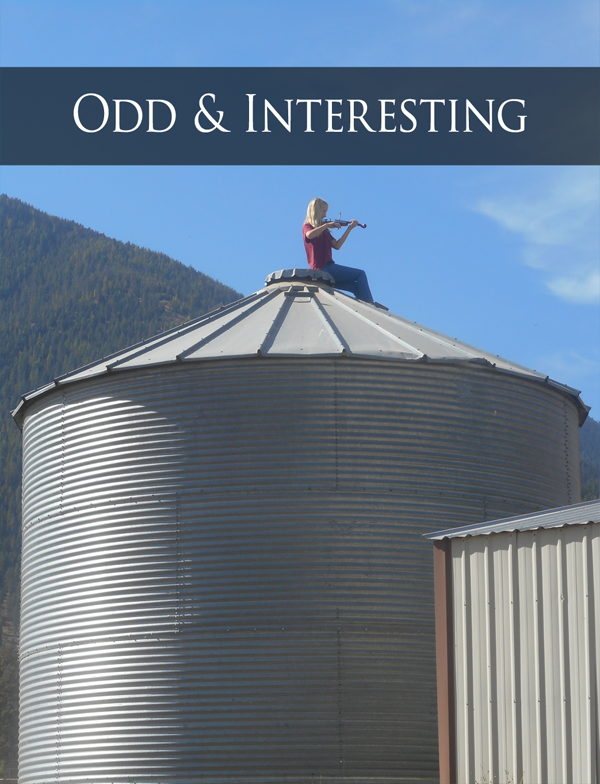Zelma Hunt
TRAVELING GENTLEMEN
In the 1930s, because of the Great Depression, thousands of American men “rode the rails” in search of employment. They were commonly called hobos, but Zelma Hunt preferred to call them “traveling gentlemen.” And truly, most of them were, indeed, gentlemen. Many had families. None had work, and were in search of a way and a place where they could earn some money to send to their families. They rode freight trains as a free way to get from one place to another.
Traveling gentlemen needed to eat, and having no money with which to buy food, they became known as “bums” as they appeared at doors asking for something to eat. Some good-hearted people made it a practice to help these traveling gentlemen. Zelma Hunt was one of those.
Zelma lived a block or two from the railroad tracks in Baker, Oregon. She would often look out her window and see a man making his way from the direction of the railroad tracks straight to her house. He would bypass other houses on her street, and knock on her door.
“Lady, could you give me something to eat?” the man would ask.
Zelma often wondered how the men knew to come to her house. Was word passed by word of mouth, or was her house marked in some way? She looked for, but couldn’t find any such marks.
If it was cold, as it often was, and if her husband or brother was at home, Zelma would invite the man in, and seat him in the warm corner by the stove. Without fail the grateful man would ask, “Is there something I can do for you? Do you have some wood that needs splitting?”
Zelma would find a job for the man to do, and she’d fix him a hot meal. Only once did she encounter a man who wasn’t a gentleman. On that occasion Zelma’s neighbor called to alert her that a man was heading toward her house. “I just gave him some bread and jam,” the neighbor said, “and he threw it in the canal.”
A minute later the man was standing in front of Zelma’s house. With a stick he beat upon the fence to get attention, and demanded in a loud voice, “I need something to eat—and make it filling!”
Zelma pretended to not hear, and the man went away. Every other man, without exception, was humble, grateful, and got whatever food Zelma was able to provide.
One man came to her door nearly frozen. He had hopped in a car that he thought was insulated. It wasn’t. He was in danger of perishing before the train stopped. Zelma seated him where it was warm, began fixing something to eat, and visited with him. He spoke of his wife and baby and of how worried he was about them.
Zelma felt badly that she had no meat to cook. She scrambled eggs, mixed in some potatoes, and fried some baloney to add to the eggs. She apologized several times for making such a meager meal.
“Lady,” the man said, “I’d be grateful if I could know I could get something this good for my next meal.”
Zelma helped everyone, not just traveling gentlemen. One winter she noticed a little girl who passed her house each morning on her way to school. The weather was cold, and the girl had no coat. Zelma visually sized the girl up, got a good coat from the closet that wasn’t being used, and took it apart at the seams. She remade the coat to fit the girl. The next day as the girl came down the street, Zelma met her out front and said, “I have a coat here that we don’t need. Could you use it?”
It gave Zelma a great deal of satisfaction to see that coat, and the warm little girl, pass her house the rest of the winter.
There are heroes among us. Most of them have this in common: They are unselfish, and look out for others.
